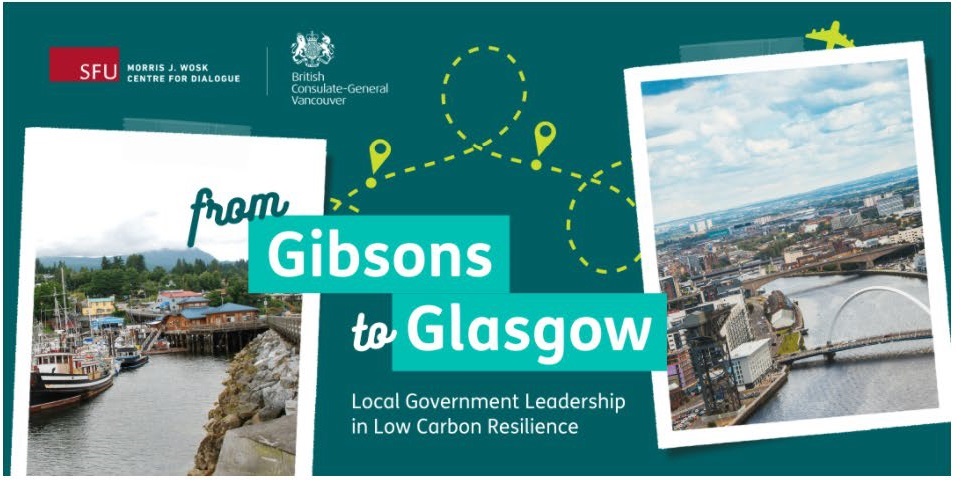
On October 5, 2021, the Town of Gibsons pledged to participate in the Cities Race to Zero.
The Cities Race to Zero is one component of the Race to Zero, a UN-backed global campaign aimed at rallying non-state actors – including companies, cities, regions, financial and educational institutions – to take rigorous and immediate action to halve global emissions by 2030 and deliver a healthier, fairer zero carbon world in time.
Our Pledge
By signing the Cities Race to Zero Pledge form, the Town of Gibsons formally agreed to:
1. Publicly endorse the following principles:
- We recognize the global climate emergency.
- We are committed to keeping global heating below the 1.5 degrees Celsius goal of the Paris Agreement.
- We are committed to putting inclusive climate action at the centre of all urban decision-making, to create thriving and equitable communities for everyone.
- We invite our partners – political leaders, CEOs, trade unions, investors and civil society – to join us in recognizing the global climate emergency and help us deliver on science-based action to overcome it.
2. Pledge to reach (net)-zero in the 2040s or sooner, or by mid-century at the latest, in line with global efforts to limit warming to 1.5 degrees Celsius.
3. In advance of COP26, explain what steps will be taken toward achieving net zero, especially in the short- to medium-term. Set an interim target to achieve in the next decade, which reflects a fair share of the 50% reduction in global CO2 by 2030 identified in the IPCC Special Report on Global Warming of 1.5 degrees Celsius.
4. Immediately proceed to planning at least one inclusive and equitable climate action that will help to place Gibsons on a resilient pathway consistent with the 1.5 degree Celsius objective of the Paris Agreement and begin implementation no later than 2022.
5. Report progress annually, beginning no later than 2022, on our 1.5 degree Celsius target and action commitments.
Our Current Actions

The Town of Gibsons is already taking action to lower our CO2 emissions, through initiatives such as our organic waste program, active transportation upgrades and our adoption of the BC Energy Step Code and Tree Preservation Bylaw.
Additionally, Council has committed to doing the following in its 2019 – 2022 Strategic Plan:
- Ensure that disadvantaged groups are fairly considered in decisions that affect them;
- Consider the environmental impact of all decisions and seek opportunities for mitigation and adaption to climate change;
- Proactively collaborate with neighbouring jurisdictions on issues that jointly affect our communities; and
- Adapt Town infrastructure to increase its resiliency to the local impacts and risks from climate change.
Looking Ahead – Planned Actions
Moving forward, actions the Town has pledged to take in order to help reach our net-zero target include:
- Create green and healthy streets
- Expand and improve walking, cycling and integrated transit access and identify potential areas for future zero emission zones by 2025
- Reduce air pollution and ensure clean air
- Develop plan by 2025 to achieve pollution reductions from major sources of pollution within city/under city control and implementing at least one new substantive policy and programme to reduce pollution from top source
-

The Town of Gibsons has added electric vehicles to its fleet as part of its commitment to reducing the production of greenhouse gases. Develop zero-carbon buildings
- Develop a roadmap to achieve net zero carbon new buildings from 2030
- Enact regulations and/or planning policy to ensure new buildings operate at net zero carbon by 2030
- Benchmark building energy use in existing buildings and implementing citywide efficiency programs with an approved roadmap to achieve all net zero carbon buildings by 2050.
-
Move toward resilient and sustainable energy systems
- Lead by example with municipal renewable energy projects maximizing the potential of municipal assets for onsite generation with the aim to cover municipal electricity demand by 100% renewables by 2025
- Make sure our policies follow the rule of “energy-efficiency” first so take all actions to increase the efficiency of end-use sectors
- Promote the use of clean energy sources for heating and cooling buildings.
- Advance toward zero waste
- Progressively phase out organics disposal to landfill and incinerators
- Ensure all waste generated in the city is being collected and residual waste is disposed of adequately in at least an engineered sanitary landfill
- Reduce the municipal solid waste generation per capita achieving at least 8% reduction in 2025, with actions like restricting single-use materials, and volume-based collection fees/incentives like “pay as you throw”, enroute to 15% reduction by 2030
- Reduce the amount of municipal solid waste disposed to the landfill and incineration by at least 50% compared to 2015 by 2030; and increase the diversion rate away from landfill and incineration to at least 70% by 2030, with actions like scaling up citywide collection with 3-stream segregate waste collection including food/recyclables/residue by 2025.
- Create sustainable food systems
- Regulate or activate programs for food businesses to minimize food-related carbon emissions.
We will report on our progress against these goals at least annually.

